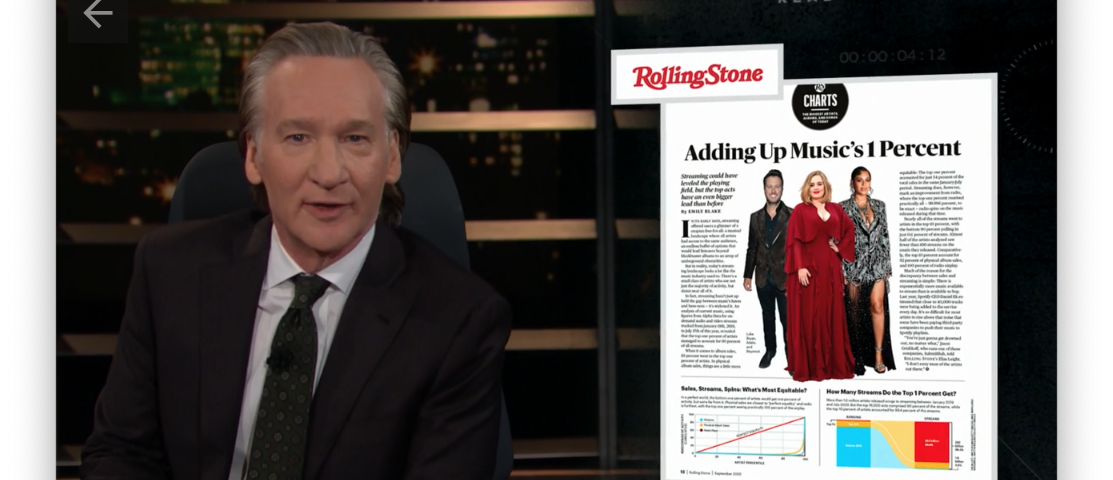I’m a fan of Bill Maher and regularly listen to the podcast of his HBO show “Real Time with Bill Maher” on my Saturday morning runs. I appreciate how he brings on political rivals, discusses uncomfortable topics, and calls out over-reaction to political correctness. However, I sometimes cringe when I hear him reduce complex ideas based on his narrow understanding of a broad topic.
A good example of this happened on this week’s show (Sunday, March 19, 2021) during his New Rules segment. He talked about the concept of “Equality of Outcomes” in which everyone is given equal treatment independent of merit. He connected it to the idea that people who believe in the equality of outcomes should not watch the Grammys since it rewards some artists and not others.
Mr. Maher laments that “Trophy Syndrome”, where everyone gets a trophy no matter how good or bad they perform, has resulted in generations of people who have an over-inflated sense of their own abilities and talents. And now when an individual is not as successful or famous as others, they think this is simply not fair.
He may have a point but then he turns from a recent article in Rolling Stones entitled “Adding Up Music’s 1 Percent: Data Shows 90 Percent of Streams Go to the Top 1 Percent of Artists” by Emily Blake from September 2020. He jokes “And yet Rolling Stone complains ‘today’s streaming landscape looks a lot like the music industry use to; a small class of artists see not just the majority of activity but damn near all of it.’ … These [artists] are called The Good Ones.”
The problem here is that there are many talented musicians that live and perform all around us. Yes, there is a lot of crap too but in my research on local music discovery, I have listened to amazing artists from many different cities and towns that practice their craft and put on amazing live shows. Not all of them play music that I personally like, but they often have dedicated groups of fans who develop deep connections to their artistic work.
Mr. Maher goes on to quote the article again “streaming hasn’t just upheld the gap between music’s haves and have-nots; it’s widened it.” He says this proves his point that since there are no more gatekeepers (i.e., record labels, radio DJs) it all comes down to talent. He says, “some musicians are have-nots because they have a voice but we [music consumers] have ears.”

This is a funny quip but what Mr. Maher is missing is that steaming services like Spotify, YouTube Music, and Apple Music are, in fact, still gatekeepers. He is overestimating the value of access and underestimating the value of initial exposure. Artists rise and fall based on whether or not they get placed on important curated playlists like Rap Caviar or algorithmically-generated personalized playlists. This is not unlike how businesses succeed or fail based on their page rank on the Google search engine.
Furthermore, unlike AM/FM radio play, these streaming music services are not prevented by law from taking money (i.e, payola) from well-funded record labels or 3rd party companies (like SubmitHub) to feature specific songs by specific artists. And what we know from the “mere exposure effect” is that people tend to prefer music that is familiar. This creates a recipe for a rich-get-richer marketplace that limits consumer awareness and prevents a larger group of artists from being able to support themselves without a day job on the side.
But we can do better. We can develop music recommendation systems like Localify.org which have been explicitly designed to lift up local music communities. Or we can put pressure on commercial streaming services to do a better job of recommending music by female artists (see Liz Pelly’s article “Discovery Weakly: Sexism on Spotify“.) We can demand interactive features that give us more fine-grained control over what is recommended based on personal values and priorities.
Mr. Maher is correct that talent is a pre-requisite for being successful as a musician. However, we can make music discovery more equitable and more humane if we better understand how coercive business models manipulate recommendation technologies to affect our (unconscious) biases and preferences as music consumers.
Listen To Local Music!
Doug Turnbull
